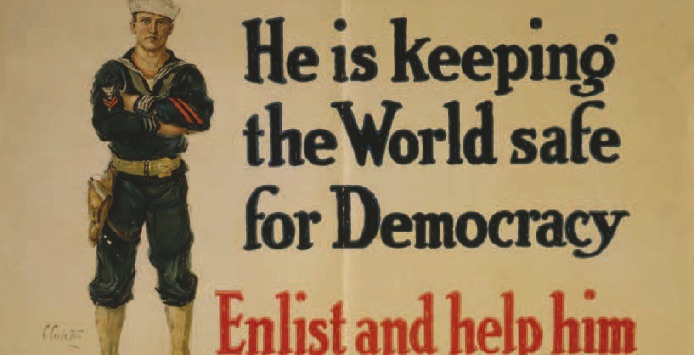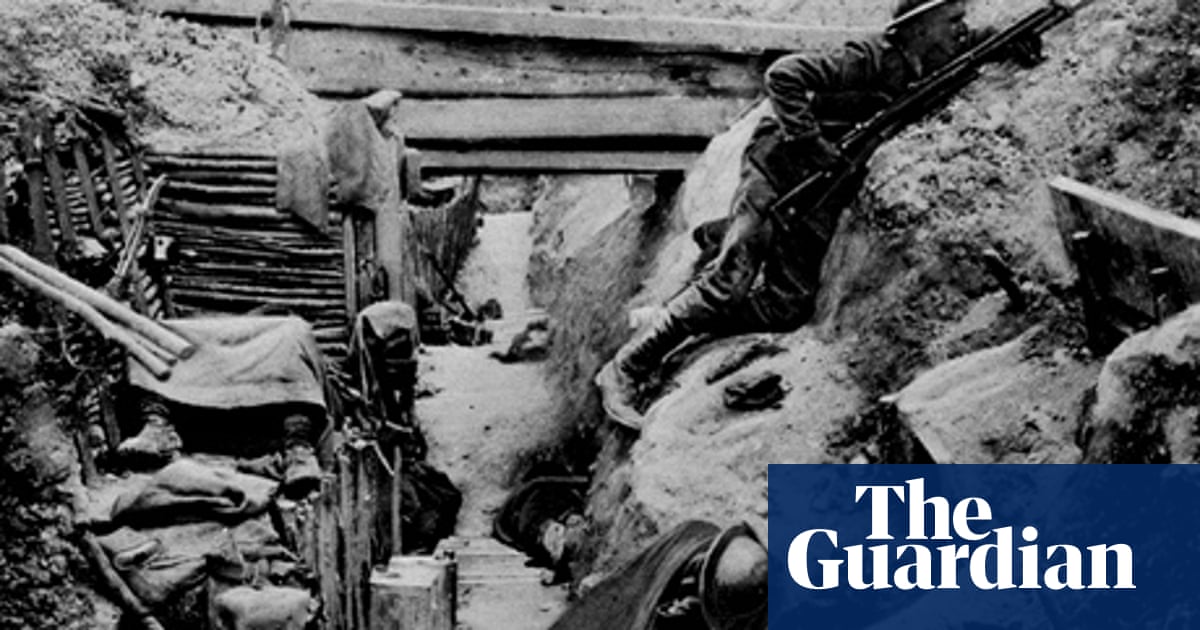Which Statement Describes How World War I Impacted African Americans
Many more African Americans moved to cities in the north and on the Pacific coast to work in wartime industries. The United States only declared war when Germany renewed its oceanic attacks that affected international shipping in April 1917.

How The Us Government Used Propaganda To Sell Americans On World War I History
Lutiant Van Wert describes the 1918 Flu Pandemic 1918 Lutiant Van Wert a Native American woman volunteered as a nurse in Washington DC.

. According to African American Odyssey. More than 350000 African Americans served in segregated units during World War I mostly as support troops. African-American soldiers came home as citizens of the world with questions about their place in American society.
The impact of World War I on African Americans especially on the soldiers who served in the perceptibly more tolerant French society transformed the black community and served as an important yet often overlooked episode in the civil rights movement. African Americans did answer their countrys call with perhaps 700000 eventually considered for eligibility. These African American service men and women.
When the United States entered the war it would have a great impact on many African Americans particularly the many men women and children who embarked on the. The war gave African Americans new economic opportunities working in war industries. Jim Crow Laws has devastating effects on the minority groups in the US particularly the African Americans since they were not given equal rights and freedoms as the whites.
As the war raged on the Black press would aim its papers to side with the French because of their continued commitment for racial equality as well as their employment of African soldiers in their military. World War I transformed America and through the demands of patriotism brought the nation together in unprecedented ways. One over the Axis abroad and another over discrimination at home.
Which statement describes how World War I impacted African Americans. Understanding how the war impacted black people and the importance of this legacy is endlessly fascinating and given our current times extremely relevant says Williams. African Americans demanded the right to wartime jobs and President Roosevelt ordered that they be given opportunity.
Four score and seven years ago our fathers brought forth on this continent a new na-tion conceived in Liberty and dedicated to the proposition that all men are created equal a quote by Americas 16th president Abraham Lincoln directly recalling how equality was the catalyst for the conception. An Interactive Webcast Examining African American Experiences in World War II. World War I and Postwar Society on the EDSITEment-reviewed website American Memory.
During World War I the federal government placed the greatest legal restrictions on which of these groups. The war gave African Americans new economic opportunities working in war industries. The Impact of World War I on African Americans Essay.
Building on earlier waves of African American migration after the Civil War and during World War I the demographics of the nation changed with the growing urbanization of the African American population. Although the United States entered the war in April 1917 there had been very little planning or even recognition of the problems that Great Britain and the other Allies. African Americans finally began to receive the equal treatment their predecessors had earned in combat in France during World War I and as far back as the American Revolution.
Which statement describes how World War I impacted African Americans. World War I marked the beginning of the Great Migration the most prominent and lasting effect of the war on African-Americans and the nation. DuBois an African American intellectual whose call for racial equality marked him as a radical thinker in his era strongly supported the war effort but the patriotism of African American soldiers was not.
More than one and a half million African Americans served in the United States military forces during World War II. No we have gained them rapidly and effectively by our loyalty in time of trial WEB. Hyper-vigilance on the home front led to spontaneous outbreaks of violence against groups whose loyalty to the United States was considered suspect.
Major cultural social and economic shifts amid a global conflict played out in the lives of these Americans. Throughout World War II African Americans pursued a Double Victory. African Americans in the Military during World War I When war broke out in Europe in 1914 Americans were very reluctant to get involved and remained neutral for the better part of the war.
They fought in the Pacific Mediterranean and European war zones including the Battle of the Bulge and the D-Day invasion. German-Americans labor activists suffragists immigrants African Americans and socialists were subjected to threats harassment imprisonment and physical violence. The Effects of the Jim Crow Laws Jim Crow laws in different states required the isolation of races in such regular regions as eateries and theaters.
DuBois from Buffalo Soldiers at Huachuca. Eager to escape the racially oppressive social and political environment of the South and lured by wartime industrial job opportunities approximately 500000 African-Americans migrated to northern cities such as. African American Service Men and Women in World War II.
But these demands also exposed deep tensions and contradictions most. In the aftermath of World War I WEB. Here she writes to a former classmate still.
During World War I the federal government placed the greatest legal restrictions on which of these groups. DuBois urged returning soldiers to continue fighting for democracy at home. Racial Awareness After the War.
The United States homefront during World War I saw a systematic mobilization of the countrys entire population and economy to produce the soldiers food supplies ammunitions and money necessary to win the war. African Americans moved out of the rural South into northern or West Coast cities to provide the muscle and skill to build the machines of war. During the 1918 influenza pandemic.
Salter says The New Negro was a social cultural economic political and intellectual rebirth of African Americans who went to fight for a country and were now unwilling to come live in the same.

Why World War I Matters In American History The American Historian

Trench Talk A Guide To First World War Slang Education The Guardian
Comments
Post a Comment